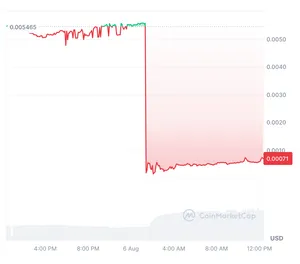Defendants Sam Bankman-Fried, Caroline Ellison, and Gary Wang, as well as the FTX and Alameda Research companies, will be prohibited from commodities trading, including trading bitcoin, ether, USDT, or other assets considered "digital asset commodities" by the CFTC. However, with Bankman-Fried already beginning a 25-year prison sentence, and Ellison and Wang due to be sentenced, this may be low on their list of worries.
FTX settles complaint from the CFTC with $12.7 billion payout
- "Judge approves $12.7 billion settlement between FTX and CFTC, bringing 20-month-long lawsuit to an end", The Block [archive]
- Permanent injunction, document #44 in CFTC v. Bankman-Fried [archive]
North Korean developers steal $1.3 million from crypto project treasury
zachxbt traced the payment addresses for roughly 21 developers involved in this kind of activity, which he found had been working for at least 25 different cryptocurrency projects. They had earned around $375,000 over the past month.
Ripple fined $125 million by the SEC
Ripple and others in the crypto world have been celebrating the judgment as a victory, in part because it is a substantially smaller penalty than the $1 billion in disgorgement and $900 million in penalties sought by the agency.
The SEC has already signaled throughout the case that they were likely to appeal an eventual outcome, after objecting to the judge's decision that several other types of token sales were not unlawful securities offerings.
Trump-themed $DJT token rug-pulls, people blame Martin Shkreli or Barron Trump
People were quick to blame those behind the project, primarily "Pharma Bro" Martin Shkreli (who has been accused of dumping his own token before). Shkreli was quick to shift the blame to Donald Trump's youngest son, Barron, who he has also claimed is behind the token (although this has not been independently confirmed). However, the owner of the wallet that dumped its tokens is not definitively known.
$12 million taken by whitehats from Ronin bridge
Fortunately for the Ronin team, it seems that most of the losses actually went to whitehats and MEV bots that were frontrunning transactions by would-be exploiters. ETH and USDC priced at around $12 million were taken — the maximum amount before triggering a safety feature in the code. Later that day, Ronin announced that the ETH (worth around $10 million) had been returned, and that the USDC was in the process of being returned. They also announced that they would reward the whitehats with a $500,000 bug bounty reward.
The Ronin bridge was taken offline shortly after the flaw was detected, and the team announced it would undergo an audit before being brought back online.
CFTC subpoenas former company of Ben "BitBoy" Armstrong over crypto promotion
Kujira token tanks as team's leveraged bets melt down
The Kujira team apologized for the fiasco, and announced a plan to create a DAO to take over the project treasury.
ConvergenceFi hacked for $210,000
Although ConvergenceFi described itself as audited, they admitted they had made changes to that portion of the code after the audits.
They assured their users that all user funds were safe, but recommended that users remove their staked funds from the platform.
- "Post-mortem | 08/01/2024", ConvergenceFi Medium [archive]
ZKX decentralized exchange shuts down in what some VCs are describing as a rug pull
ZKX had raised $4.5 million in seed funding from investors including the now-bankrupt Alameda Research, Starkware, HTX, Amber Group, ArkStream Capital, and HashKey Capital. The project had announced a second, $7.6 million raise only a few weeks before its shutdown.
People at Amber Group, ArkStream, and HashKey publicly criticized the lack of transparency from ZKX around its financial situation. Ye Su, a founding partner at ArkStream, explained that he felt they had been "rug pulled".
Blockchain sleuth zachxbt joined the VCs in characterizing the project as a rug, and further elaborated that he felt the retail investors who had purchased the project's token only weeks earlier had been tricked into buying a token by the project team, who "misled the community/retail ... by giving the appearance the project was healthy and strong when in reality they were in a bad position and about to shut down."
BitClout founder arrested on wire fraud charges
According to the criminal charges, Al-Naji misled investors, including by taking $3 million from an investor and using it for his own personal expenses and gifts to family. Al-Naji had told investors that the sales of the platform's token would not go to him or to other employees.
The SEC complaint separately alleged that Al-Naji had tried to falsely present the BitClout project as decentralized, including by soliciting a letter of opinion from a law firm that his tokens were not likely to be deemed securities, which was based on mischaracterizations.
BitClout raised money from various prominent firms, including Andreessen Horowitz, Sequoia, Chamath Palihapitiya's Social Capital, Coinbase Ventures and Winklevoss Capital.
- "Founder Of 'BitClout' Digital Asset Charged With Fraud In Connection With Sale Of 'BitClout' Tokens", U.S. Attorney's Office, Southern District of New York [archive]
- "SEC Charges Nader Al-Naji with Fraud and Unregistered Offering of Crypto Asset Securities", U.S. Securities and Exchange Commission [archive]
- "SEC charges BitClout founder Nader Al-Naji with fraud; says proceeds paid for L.A. mansion, gifts", TechCrunch [archive]









